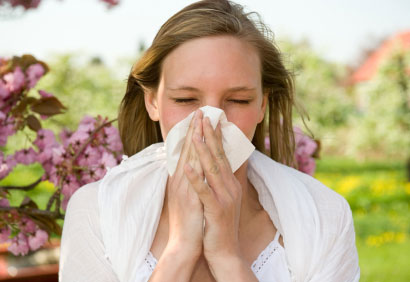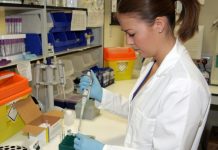The latest publication in the Journal of Allergy and Clinical Immunology has revealed that a new vaccine to fight hay fever has been developed.
The research was conducted at Imperial College London and King’s College London in collaboration with Guy’s hospital. Scientists working on this project have been successful in producing a prototype of the vaccine.
The results are so promising that clinical trials are now underway.
What is Hay Fever?

In UK, every fourth person is affected by hay fever during peak season. It is an allergic reaction caused in the body of the susceptible persons, to the pollen that disperses during early spring.
This allergy triggers bouts of sneezing, runny or blocked nose, itchy eyes etc. This has severe impact on the social life of the person affected. For mild cases oral medication may be effective, but for severe cases immunotherapy is the only solution.
Vaccines for Hay Fever
Vaccines currently in use to prevent hay fever are based on the principle of injecting high doses of the allergen. This is both expensive and very inconvenient to the patient and the health department.
Development of this new vaccine comes as a sigh of relief to the health care community. The vaccine is based on a new concept where low doses of the allergen are injected intradermally. This has led to as much as 90% enhanced results of reduction in rashes among the allergic patients. The study was conducted as under:
- In this experiment, a group of participants received 6 intervals of the vaccine over 10 weeks at 2-week intervals.
- The allergic response was measured. It provoked a slight reaction on the patients arm. With each injection the size of the reaction reduced by 90%.
- Moreover, none of them reported any adverse effects of the vaccine.
Conclusions
The researchers believe that it is the intradermal nature of these injections that have led to the success of this vaccine. This study has thus proved to be the stepping stone to intradermal vaccines in treating allergy with immune therapy. Other allergic conditions that can be prevented using this technique are asthma and eczema.












